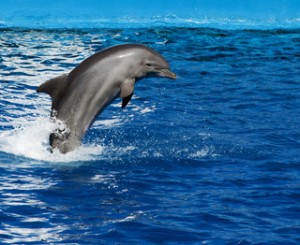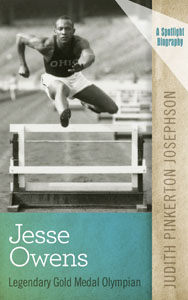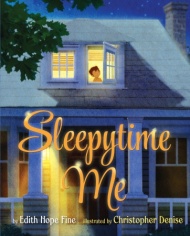 We (Edith Hope Fine and Judith Josephson) are the Grammar Patrol. Both of us taught for years and are now writers, with thirty plus books between us, including our two popular grammar guides, Nitty-Gritty Grammar and More Nitty-Gritty Grammar. For close to twenty years, we taught writing and grammar basics and now we blog about grammar for writers.
We (Edith Hope Fine and Judith Josephson) are the Grammar Patrol. Both of us taught for years and are now writers, with thirty plus books between us, including our two popular grammar guides, Nitty-Gritty Grammar and More Nitty-Gritty Grammar. For close to twenty years, we taught writing and grammar basics and now we blog about grammar for writers.
Let’s turn literary. In More Nitty-Gritty Grammar we included some terms that don’t technically fall under the “grammar” category, but are things writers use to power up their writing—metaphors, similes, analogy, alliteration, hyperbole, and onomatopoeia.
Writers who use these techniques create writing that pulls readers in, making them want to read into the night. Literary writing soars.
Metaphor
 Metaphors are figures of speech that compare, making two very different things seem the same. Think “is” for metaphor, even though the two ideas can’t be compared literally.
Metaphors are figures of speech that compare, making two very different things seem the same. Think “is” for metaphor, even though the two ideas can’t be compared literally.
• Hank is a dolphin in the ocean, diving over and over through the waves.
• Ottilie was a mule when it came to changing her mind.
• My computer is as old as a dinosaur.
Simile
Similes are figures of speech that make two disparate things seem similar. Think “as” or “like” for simile.
• Mr. V’s voice was like chalk screeching on a blackboard.
• “Ew! This cooking oil is as smelly as old socks.”
• She has a mind like a computer.
• The professor’s lectures were as dull as paste.

In Judith’s new eBook biography of Jesse Owens (Jesse Owens: Legendary Gold Medal Olympian, eFrog Press), track and field star Jesse Owens inspired many metaphors and similes among sportswriters: “In college at Ohio State, track and field star Jesse Owens was the “Buckeye Bullet,” as swift as a cheetah.” (Watch this eFrog blog for more on this eBook.)
Analogy
Analogies compare objects or people, often with similar features. Analogies can help illustrate or describe.
• Dr. Au made an analogy between a stomach and a food processor.
• Beverly compared her high-strung client to a spirited racehorse.
Alliteration
Alliteration is the repetition of letters or sounds in words that fall close together.
• festive finery
• ten tall trumpeters
• bubbles breaking in the brook
• wandering willows
• No allowance until you come and clean your closet!
Alliteration loses its allure with overuse:
Billy Bob bought beer for baseball buddies at Bubba’s Bar.
Hyperbole
Hyperbole (hie PER’ buh lee) is elaborate exaggeration used for emphasis or effect. (Wow, that was alliterative!) Bill Watterson’s cartoon in More Nitty-Gritty Grammar has Calvin saying, “What a day. I feel like I’ve been run over by a train.” Then KAPOW! Hobbes streaks in, knocking him down. Smooshed Calvin says, “I mean now I feel like that.” Sweet Hobbes notes, “See? You should always save hyperbole until you really need it.” (We forgive Calvin for using “like” when he should have used “as if.”)
• I’m so hungry I could eat a horse.
• These new shoes are killing me.
• His brain is the size of a pea.
Onomatopoeia
 Onomatopoeia is all about sounds—words that echo real-life sounds. Straight from the Greek word onomatopoeia, it means “words that reflect meaning in their sounds.”
Onomatopoeia is all about sounds—words that echo real-life sounds. Straight from the Greek word onomatopoeia, it means “words that reflect meaning in their sounds.”
We were stuck for a strong illustration for “onomatopoeia,” so emailed Brooke McEldowney, creator of the quirky comic 9 Chickweed Lane. We almost fell from our chairs six weeks later when her strip featuring onomatopoeia appeared in the paper. “Buzz! Hiss! Osculate!” We discovered that Brooke had written “onomatopoeia” on a Post-it and stuck it on her monitor waiting for inspiration. Lucky us. Lucky grammar readers.
Other onomatopoetic words? Babble, sizzle, whippoorwill, screech, pop . . . In Edith’s new Sleepytime Me, a bedtime book for littles (Random House, 2014), piglets “wuffle.” You won’t find wuffle in the dictionary, but it’s easy to imagine plump piggies wuffling in their sleep.
Kids love onomatopoeia and making up sounds—a great way to lure kids into writing. Be on the lookout for other great examples of literary terms. Send us your favorites—your messages make us merry.
Please Share
How to you use literary devices to add sparkle to your writing?